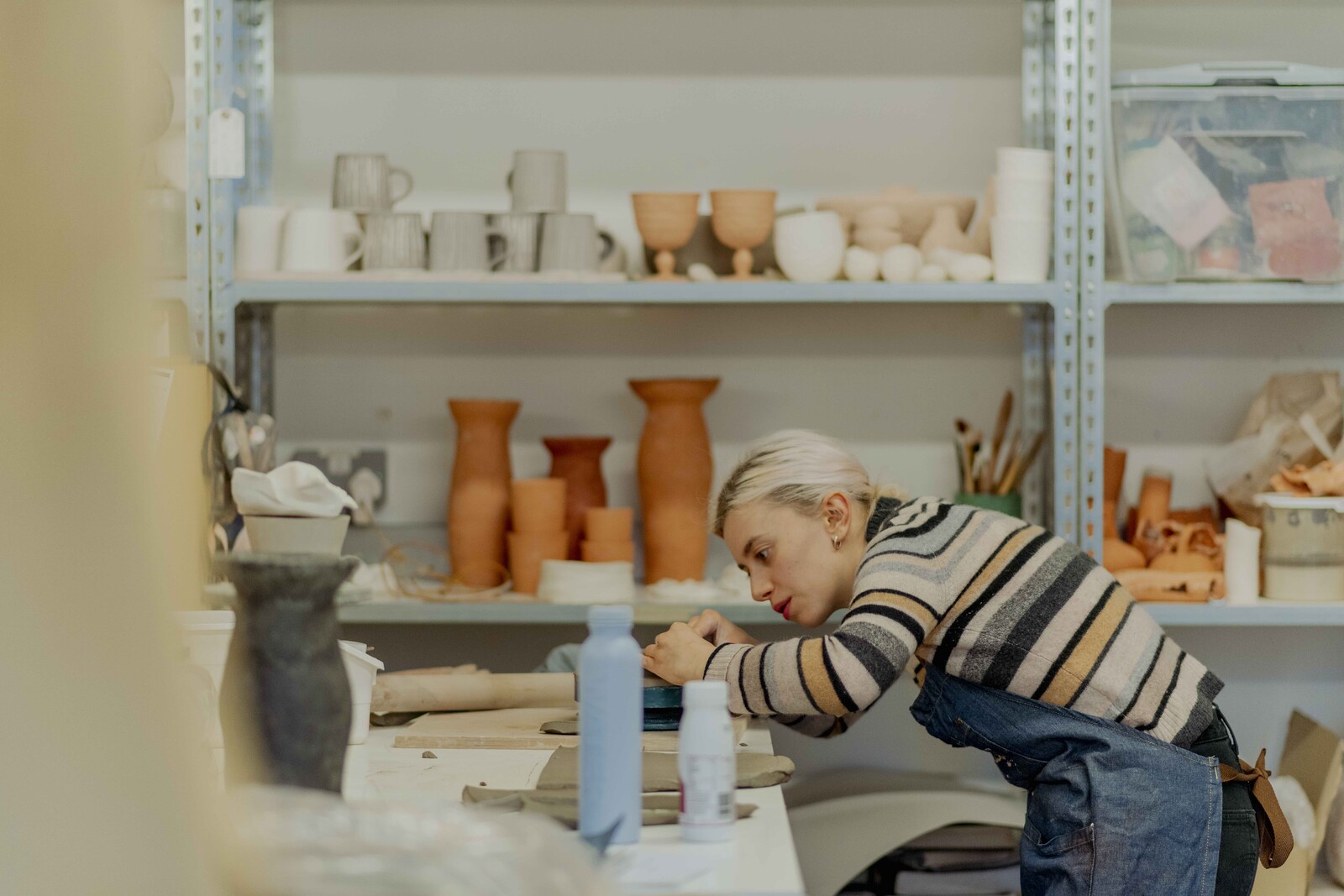Professor Stephen Felmingham and Professor Penny Hay discuss creative education
Tavistock Place
PL4 8AT Plymouth
England
Arts University Plymouth recently launched its new strategic plan “Creative Education for a Changing World”, an essential strand of which is “Teaching for our Time”, capturing the principles that define the university’s approach and method of teaching.
Founded in 1856 as Plymouth Drawing School and offering a range of undergraduate, postgraduate and pre-degree qualifications, Arts University Plymouth is a new kind of art school for the 21st century, preparing graduates who are uniquely placed to provide creative solutions to the complex global challenges of our times.
Professor Stephen Felmingham, Pro Vice-Chancellor (Academic) at Arts University Plymouth, said: “The arts teach us in a direct and unmediated manner what it means to come into dialogue, be in dialogue and remain in dialogue through the relationship of head, hands and heart. They deepen and broaden the ways we are in touch with the world through our thinking.
“At Arts University Plymouth we believe that authenticity, fulfilment and kindness are indexical qualities in the process of thinking, making and living.”
Professor Felmingham met with Arts University Plymouth Honorary Fellow Penny Hay, Professor of Imagination at the Centre for Cultural and Creative Industries and a Reader in Creative Teaching and Learning at Bath Spa University, and with third-year BA (Hons) Illustration students Zara McDermott and Catherine Witcher, to discuss “Teaching for our Time” and creative education.
Together they debated the importance of creativity in response to wider global challenges and issues, why meeting resistance is important in learning to overcome challenges, and how kindness works in education.
“Thinking of a pedagogy of care, what does kindness in education mean to you?”
Catherine said: “Kindness in education is important, but authenticity matters to me equally. As a student at Arts University Plymouth, the critical feedback that I receive for work I create comes from a place of honesty and authenticity. I feel like that approach leads to genuine, sincere kindness.”
“Students learn the most when they encounter resistance and learn strategies to overcome it. What have your experiences been of encountering resistance in education?”
Zara said: “Your natural inclination, if you try something new that doesn’t work, is to ask the lecturers why it isn’t working. The lecturers at Arts University Plymouth instead give me the space to ask myself why it isn’t working and learn from the experience.”
Professor Hay said: “Professor Dennis Atkinson also talked about an interruptive pedagogy and the place of the event or the student’s encounter with interruption. The arts are brilliant at manifesting these opportunities for learning through resistance and experimentation… We should embrace the idea of the unexpected and celebrate failure more than we do.”
“Why do you think that turning towards the world is important?”
Catherine said: “It’s important to face the world and try to understand it, because history is a cycle of repetition. As artists we have the skills to communicate in a different way and help people to engage with complex issues.”
Professor Felmingham said: “We meet the world through the stories we tell ourselves, but to understand the world better we should engage with stories from outside the Western canon, to better understand ourselves and the ways that others view us.”
“How important is it for educators to prioritise space, time and resources?”
Professor Hay said: “The best results come when you’re in a space of possibility and space of belonging, a space where you feel you can express your ideas without the kind of judgement that closes ideas down.”
Zara said: “Being inside Arts University Plymouth is special. Working from home doesn’t give me the same creative energy that I experience here.”
Read the full debate around “Teaching for our Time” and creative education and find out more about the UK’s newest arts university. Interested in studying for an MA? Come to the next Postgraduate Open Day on March 23 to explore the potential at Arts University Plymouth.



